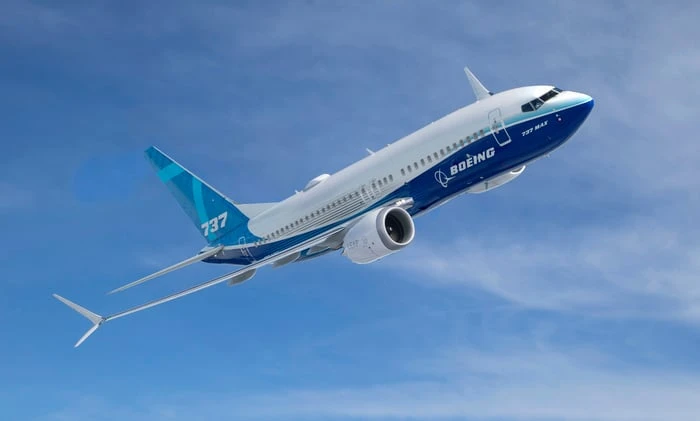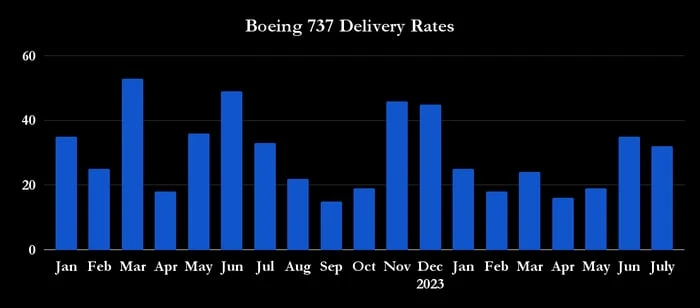Down by a little over 22% in 2024 so far, Boeing (-1.35%) has experienced another challenging year. However, the focus for potential investors isn’t on the current state of the company. Instead, there’s a compelling argument to consider purchasing the stock due to the promising potential of the new CEO, Kelly Ortberg, to revitalize the company. Let’s delve into both the bear and bull perspectives.
The Bears’ Perspective
There are numerous concerns surrounding Boeing at the moment. The core Boeing Commercial Airplanes (BCA) division is grappling with persistent quality management issues, particularly with the 737 MAX. These problems, highlighted by a widely publicized door blowout on an Alaska Air flight earlier this year, have forced the company to slow down deliveries to enhance safety and quality standards.
Moreover, Boeing recently faced embarrassment when it had to ground its 777X test fleet following a failure, just weeks into the Federal Aviation Administration (FAA) certification flight testing—a move that is likely to strain investors’ patience.
In its quest to bolster quality control and secure a steady supply of fuselages, Boeing is acquiring Spirit AeroSystems and may need to invest further to enhance its operations.
Additionally, Boeing’s challenges extend beyond the commercial aerospace sector. The Boeing Defense, Space & Security (BDS) division continues to report significant losses, primarily due to problematic fixed-price development programs, including the infamous Air Force One deal negotiated during President Trump’s tenure.
Should the bears’ view hold true and these issues prove to be structural in the defense sector—something even companies like Lockheed Martin and RTX are struggling with regarding fixed-price contracts—investors might have to adjust their long-term earnings forecasts for BDS.

As if that weren’t enough, Boeing’s management is currently in negotiations with the International Association of Machinists (IAM) for a new contract to replace the one expiring in mid-September.
Lastly, former CEO Dave Calhoun has left Ortberg at the helm of a company seemingly uncertain about its trajectory. For instance, Calhoun maintained the $10 billion free cash flow (FCF) target for 2025/2026, as outlined in November 2022. While Calhoun may have believed in this goal, Wall Street remains skeptical, with analysts projecting FCF of $4.8 billion in 2025 and $8.1 billion in 2026.
The Bulls’ Perspective
The argument in favor of Boeing stock is pragmatic, acknowledging the company’s shortcomings while emphasizing its appealing valuation and the potential for improvement under the leadership of industry veteran Ortberg.
Boeing’s new CEO boasts a commendable track record in managing complex operations. During his tenure as CEO of Rockwell Collins, he oversaw the acquisition of BE Aerospace. He subsequently led Collins Aerospace (formed from the merger of Rockwell Collins and United Technologies) into its integration with Raytheon Company as part of their broader merger.

The optimists assert that expectations are so low that Ortberg has ample opportunity to create substantial shareholder value. Referring back to the FCF forecasts, although the $10 billion target for 2025/2026 seems unrealistic, investors don’t need to believe in it to see value in Boeing. For instance, the Wall Street consensus of $8.1 billion in 2026 would result in a price-to-FCF ratio just over 13, considering the current valuation.
Boeing’s delivery performance is also on the rise. Focusing on the critical narrowbody 737 MAX, Boeing recorded 158 orders by the end of July. The company continues to secure orders, with 4,741 unfilled 737 MAX orders in its backlog.

According to Boeing’s management at BDS, the troublesome fixed-price development programs are making progress through key milestones in 2024 and account for only 15% of its revenue—the remainder of BDS is profitable.
A Stock to Consider?
There’s a value proposition for investing in Boeing stock. However, many investors can afford to exercise patience, waiting for Ortberg to navigate the contract negotiations successfully, likely revise the $10 billion FCF target for 2025/2026 early on, and ensure BCA achieves a delivery rate of 38 per month for the 737 MAX program. A couple of quarters without substantial BDS charges would also be beneficial.
Support for the stock will likely grow once some of these milestones are met, and Ortberg realigns investor expectations.




